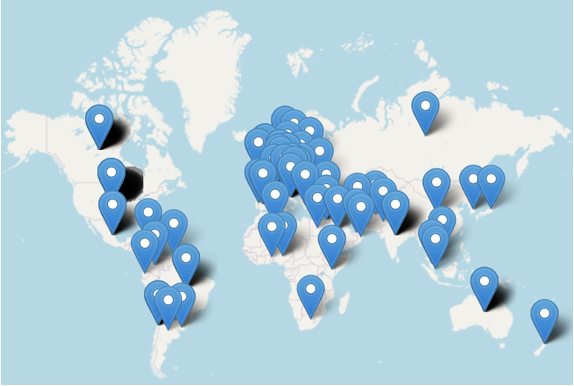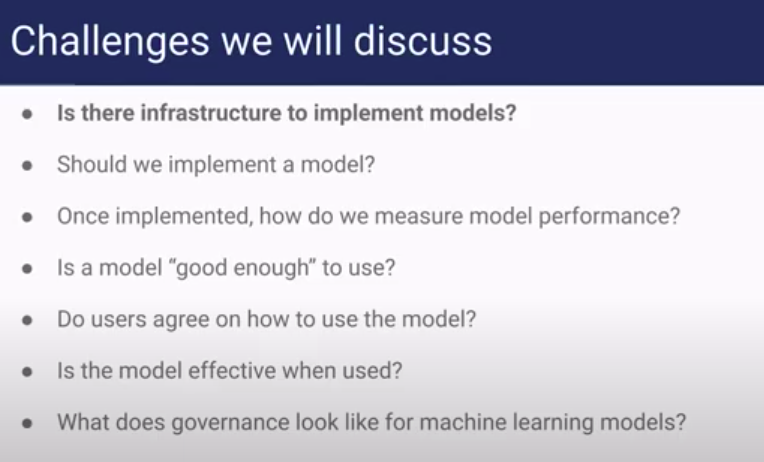R / Medicine is a big deal. This year, the conference grew by 13% with 665 people from over 60 countries signing up for the virtual event which was held last month. 34% percent of the registrants were from outside of the United States and 17% identified as physicians.

The conference is now an established international event where experts report on the advanced use of the R language, Machine Learning, and statistical analysis, and discuss the successes and challenges associated with bringing these technologies to day-to-day medical practice.
Almost all of the talks, including keynotes, regular talks, lightning talks, pre-conference workshops and poster sessions are available online. Find the links on the R / Medicine site or look through the playlist on the R Consortium Youtube Channel. Note that the posters can be viewed by going to the conference spatial.chat site. (If you and a friend visit at the same time you should be able to “walk around” the posters and chat about what you see.)
To kick off an evening of binge watching the conference I would begin with the keynotes.
The Keynotes
Dr. Karandeep Singh sets the hook for his talk, Bringing Machine Learning Models to the Bedside at Scale, two minutes into the video when he asks:
Who are the twenty sickest patients in the hospital right now who are not in the ICU?
This straightforward question immediately gets to the promise and the problems of introducing large scale machine learning algorithms into the hospital, and indicates how medical practice interacts with big money questions about allocating resources. Both physicians and administrators would like to identify high risk patients and treat them proactively while being able to confidently spend less on unnecessary test for low risk patients. About (5:10) into the talk, Karandeep begins discussing the challenges associated with introducing machine learning models.

In the remainder of the talk he describes the technical infrastructure and then the governance or “social infrastructure” needed for success.
If you enjoy a good detective story, and take pride in your ability to interpret a well-done statistical plot you are certainly going to want to watch Ziad Obermeyer’s keynote Dissecting Algorithmic Bias. About two minutes into the video Professor Obermeyer sets the stage with the warning:
The single greatest threat to all of the gains that we can make in using algorithms in medicine is letting them go wrong in increasingly well known ways.
and the observation that due to the focus of the US health care management on “high risk care management” an estimated 150 to 200 million Americans are sorted by algorithms every year. He goes on to work through a case study that illustrates how an algorithm built with good intentions had the effect of scaling up racial bias.

A second case study features an algorithm that “fights against” racial bias. Along the way, Ziad weaves two common themes into his presentation:
- So many of the ways that algorithms can go wrong come from training algorithms with the wrong target variables, often “convenient and tempting proxies”.
- The necessity of follow-up work to fix underlying problems.
In the remainder of this post, I have organized the talks into six categories that you may find helpful for setting your viewing program: Clinical Practice, Clinical Trials, Medical Data, R in Production, R Tools, and Short Courses. The majority of the talks have a machine learning angle. There is quite a bit of Shiny and several R packages, not all of them on CRAN, are featured. I have provided links when I could find them. I don’t want to spoil anyone’s fun in searching through the videos for “Easter Eggs”, but the Reproducible Research with R short course contains the first preview on the Quarto Publishing system in a talk from anyone at RStudio. (Note that the video needs some editing. Start watching at 9 minutes.)
Clinical Practice
- Building an Interpretable ML Model API for Interpretation of CNVs in Patients with Rare Diseases - Francisco Requena
- Subgroup Identification and Precision Medicine with the personalized R Package - Jared Huling
- R and Shiny Dashboards to Facilitate Quality Improvement in Anesthesiology and Periopeartive Care - Robert Lobato
tidytof: Predicting Patient Outcomes from Single-cell Data using Tidy Data Principles - Timothy Keyes- Assessing ML Model Performance in DIverse Populations and Across Time - Victor Castro, Roy Perlis
Clinical Trials
- Designing Early Phase Clinical Trials with
ppseq- Emily Zabor - Collaborative, Reproducible Exploration of Clinical Trial Data - Michael Kane
- Graphical Displays in R for Clinical Trials - Steven Schwager
ctrialsgov: Access, Visualization, and Discovery of the ClinicalTrials.gov Database - Taylor Arnold
Medical Data
- Scaling Up and Deploying Shiny and Text Mining for National Health Decisions - Andreas Soteriade, Chris Beeley
- Mapping African Health Data with
afrimaprPackage, Training & Community - Andy South - You R What You Measure: Digital Biomarkers for Insights in Personalized Health - Irene van den Broek
- Shiny and REDCap for a Global Research Consortium - Judith Lewis, Stephany Duda
- Diving into Registry Data: Using R for Large Norwegian Health Registries - Julia Romanowska
ReviewR: A Shiny App for Reviewing Clinical Records - Laura Wiley, David MayerDOPE: An R package for Processing and Classifying Drug Names - Layla Bouzoubaamedicaldatafor Teaching #Rstats - Peter Higgins- Stem Cell Transplant Outcomes Reporting using R/Shiny - Richard Hanna, Stephan Kadauke
R in Production
- Second Server to the Right and Straight On ‘til Production: Deploying a GxP Shiny Application - Marcus Adams
- Target Markdown and
stantargetsfor Bayesian model validation pipelines - Will Landau GENETEX: A Genomics Report Text Mining R Package to Capture Real-world Clinico-genomic Data - David Miller, Sophia Shalhout
R Tools
- Generalized Additive Models for Longitudinal Biomedical Data - Ariel Mundo
- Multistate Data Using the
survivalPackage - Beth Atkinson - Bayesian Random-Effects Meta-analysis using
bayesmeta- Christian Rover - An
arsenalof R Functions for Statistical Summaries - Ethan Heinzen, Beth Atkinson, Jason Sinnwell - R Markdown and
officedownto Automate Clinical Trial Reporting - Damian Rodziewicz - Creating and Styling PPTX Slides with
rmarkdown- Emil Hvitfeldt runway: an R Package to Visualize Prediction Model Performance - Jie Cao, Karandeep Singhclinspacy: An R package for Clinical Natural Language Processing - Jie Cao, Karandeep Singh- Data Visualization for Machine Learning Practitioners - Julie Silge
- Animated Data Visualizations with
gganimatefor Science Communication during the Pandemic - Kristen Panthagani - Incorporating Risk-of-Bias Assessments into Evidence Syntheses with
robvis- Luke McGuinness, Randall Boyes, Alex Fowler - ‘gpmodels’: A Grammar of Prediction Models - Sean Meyer, Karandeep Singh
- CONSORT Diagrams in R with
ggconsort- Travis Gerke
Short Courses
- Secure Medical Data Collection: Best Practices with Excel, and Leveling Up to REDCap and
CollaboratoR- Peter Higgins, Will Beasley, Kenneth MacLean, Amanda Miller - Introduction to R for Medical Data - Ted Laderas, Daniel Chen, Mara Alexeev
- An Introductory R Guide for Targeted Maximum Likelihood Estimation in Medical Research - Ehsan Karim, Hanna Frank
- Mapping Spatial Health Data - Marynia Kolak, Susan Paykin
- From SAS to R - Joe Krsszun
- Reproducible Research with R - Alison Hill, Stephan Kaduke, Paul Villanueva
You may leave a comment below or discuss the post in the forum community.rstudio.com.